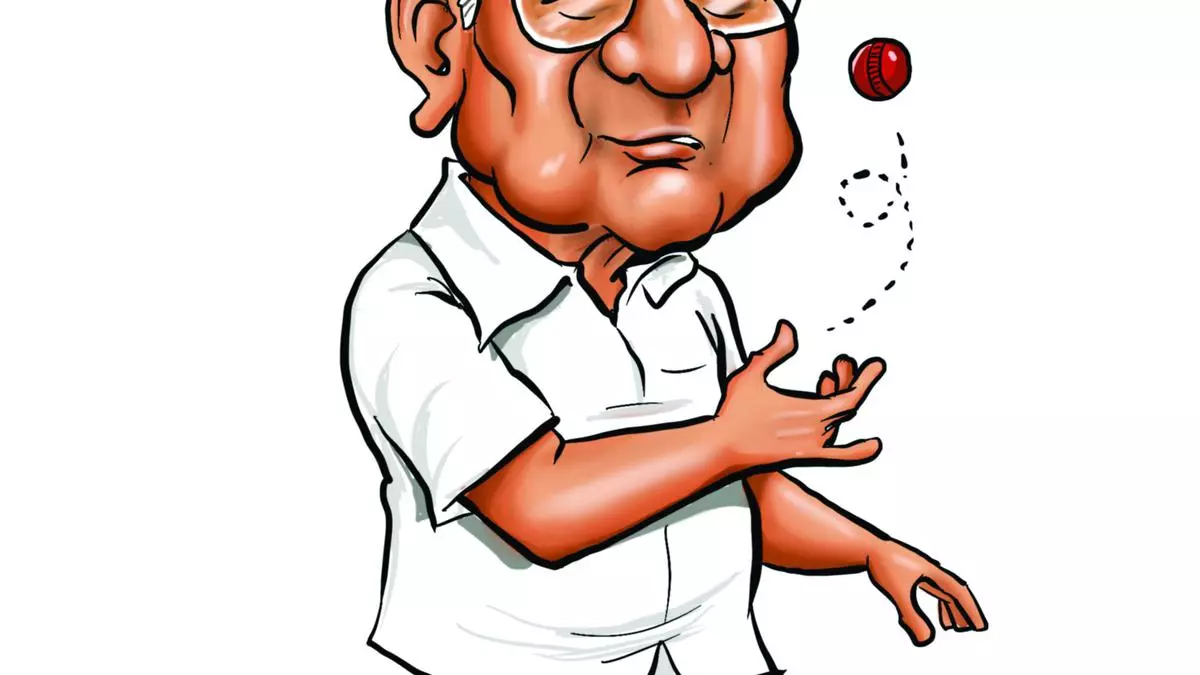Sharad Pawar is a highly skilled and knowledgeable politician with a great understanding of his colleagues and adversaries. He possesses exceptional administrative abilities and an extensive knowledge of Maharashtra. In addition, he showcases his clever sense of humor, as seen in his response to being questioned about his influence in Maharashtra’s government. Despite denying being the “headmaster” or “remote controller” of the Maha Vikas Aghadi government, Pawar is undeniably the central figure in the coalition. Chief Minister Uddhav Thackeray heavily relies on Pawar’s guidance and support, especially during his transition into power. Pawar’s audacity and ambition led him to form the highly unlikely alliance called the MVA, which consists of the Shiv Sena, the Congress, and the Nationalist Congress Party (NCP) that Pawar leads. Despite growing tired of being labeled as the “kingmaker” or “power behind the throne,” Pawar’s influence and advice have been essential in the MVA’s success in the past two and a half years. While Thackeray and his ministers handle day-to-day affairs, they turn to Pawar for guidance in handling larger issues. For instance, Pawar met with Prime Minister Narendra Modi to discuss concerns over the Enforcement Directorate’s actions against a Shiv Sena MP and the delay in approving Thackeray’s nominations for the State Legislative Council. Pawar’s intervention was necessary due to pressure from the State’s BJP, who sought the assistance of the central government. The trust deficit within the Congress towards Pawar and the NCP is evident. Prior to the 2014 Assembly elections, Pawar secretly collaborated with the BJP, resulting in a dissolution of alliances between the Shiv Sena-BJP and Congress-NCP. Each party independently contested the elections, with the NCP and BJP avoiding confrontation. Despite the BJP forming the government with the help of the Shiv Sena, the events emphasize Pawar’s significant influence in Maharashtra politics. Pawar’s strategic prowess was evident in the creation of the MVA alliance in 2019. Despite the inherent tensions and uncertainties, Pawar remained composed. The only instance of concern was when his nephew, Ajit Pawar, briefly joined the BJP along with independent MLAs. However, the issue was swiftly resolved, highlighting Pawar’s resilience and determination. Pawar’s leadership within the coalition is marked by his ability to navigate small conflicts between the Shiv Sena and the Congress. Despite ideological differences, Pawar recognizes the need for flexibility within the alliance to ensure its survival. Moving on to Akhilesh Yadav, the former Chief Minister of Uttar Pradesh and President of the Samajwadi Party (SP), his role in any national opposition alliance against the BJP is highly debated due to Uttar Pradesh’s significant representation in the Lok Sabha. As the most populous state, Uttar Pradesh contributes 80 members to the Lok Sabha, making the principal opposition party’s role crucial in countering the BJP, led by Prime Minister Narendra Modi. While Akhilesh Yadav and the SP have previously raised hopes of challenging the BJP, they have often fallen short. However, political observers and practitioners now believe that the situation will be different in 2024. The SP’s strong performance in the 2022 Assembly elections, along with allies such as the Rashtriya Lok Dal (RLD), Suheldev Bharatiya Samaj Party (SBSP), Mahan Dal, and Janwadi Party (Socialist), established a two-party contest with the BJP. The BJP’s seat share decreased from 322 in 2017 to 273, while the SP alliance’s seat share increased from 52 to 125. The SP’s vote share also witnessed a significant jump from 21.8% in 2017 to 32.06% in 2022. Additionally, the SP alliance was ahead in 24 out of the 80 Lok Sabha seats in terms of Assembly seat numbers. The expectations for the SP and Akhilesh Yadav are higher than ever before, with their positioning in national opposition politics becoming increasingly prominent. Although post-election predictions anticipated the collapse of the SP alliance, it remains intact. Key alliance members have secured positions in the Rajya Sabha, indicating their significance in national politics. The SP’s previous alliance with the BSP and RLD was seen as a coming together of dominant castes, and this socio-political equation may play a crucial role in shaping the 2024 elections.
© Telusuko.com

